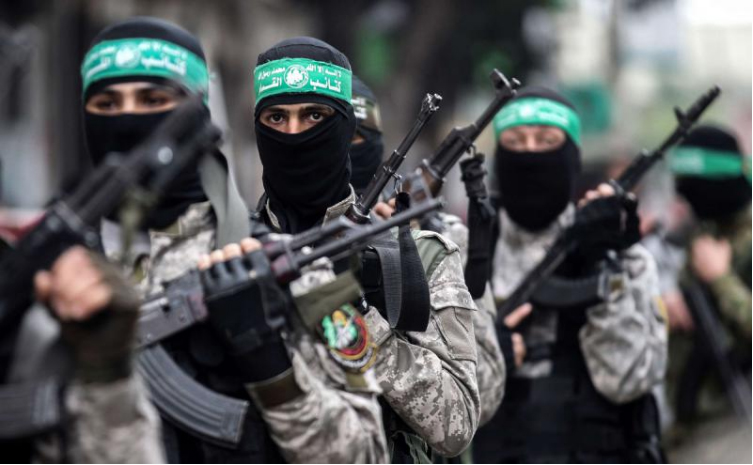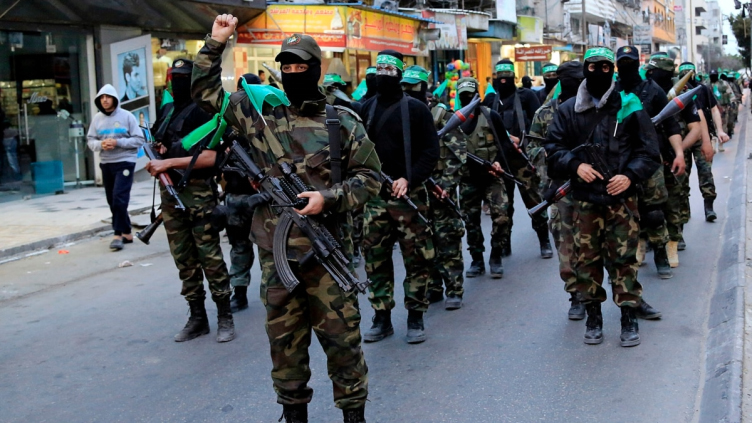
Nikita Bohra
Posted On : Oct 11 2020
The Al Qassam Brigades: Unravelling the Armed Wing of Hamas
The Al Qassam Brigades, the military wing of the Palestinian political and militant organization Hamas, is a formidable force in the Israel-Palestine conflict.

Renowned for its resilience and determination, the Brigades have played a significant role in shaping the dynamics of the region. This article explores the origins, objectives, and impact of the Qassam Brigades, shedding light on their complex role in the ongoing struggle for Palestinian self-determination.
The Qassam Brigades take their name from Sheikh Izz ad-Din al-Qassam, a Syrian-born Islamic preacher who inspired Palestinian resistance against British colonial rule and Jewish immigration in the early 20th century. Established in the late 1980s, the Qassam Brigades emerged as a response to the First Intifada (Palestinian uprising) against Israeli occupation. The group rapidly gained prominence due to its armed struggle tactics.
The Al Qassam Brigades' primary objective, like Hamas, is to resist Israeli occupation and seek self-determination for the Palestinian people. They are driven by a combination of nationalist aspirations and Islamist ideology. Key elements of their ideology include
Resistance: The Brigades see armed resistance as a legitimate means to achieve their goals, including the use of rockets and suicide bombings.
Social Services: Similar to Hamas, the Brigades have engaged in social services and charitable activities, providing education, healthcare, and welfare to Palestinians in Gaza.
Distrust of Peace Process: The Brigades have often been sceptical of the peace process and have criticized negotiations with Israel, preferring a more confrontational approach.
The Al Qassam Brigades have been responsible for a series of attacks against Israeli military and civilian targets over the years. They are most known for their rocket attacks on Israeli towns and cities, including those close to the Gaza border. These rocket attacks have resulted in casualties and psychological distress among Israeli civilians, leading to escalations of violence in the region.

The Brigades have engaged in multiple armed confrontations with Israel, most notably the conflicts in 2008-2009, 2012, and 2014. These conflicts, often referred to as "Operation Cast Lead," "Operation Pillar of Defense," and "Operation Protective Edge," respectively, resulted in significant casualties and destruction in Gaza and Israel.
In response to the Qassam Brigades' activities, Israel imposed a blockade on Gaza in 2007, citing security concerns. This blockade restricts the movement of goods and people in and out of Gaza, creating severe humanitarian challenges for the territory's residents.
The Al Qassam Brigades have not only influenced the military dynamics in Gaza but also played a significant role in Palestinian politics. Hamas's rise to power in Gaza in 2007 further solidified the Brigades' position as a key player in the Palestinian national struggle.
The Al Qassam Brigades face numerous challenges, including the need to balance military activities with governance responsibilities and navigate international pressure to disarm. Their actions have also drawn criticism for their impact on civilians in both Gaza and Israel.
The Al Qassam Brigades remain a formidable and controversial force in the Israel-Palestine conflict. Understanding their origins, objectives, and impact is crucial for comprehending the complex and multifaceted dynamics of the region. As the conflict persists, the role of groups like the Qassam Brigades continues to evolve, making their future actions and interactions with regional and international actors a subject of immense significance in the quest for a just and lasting resolution to the Israel-Palestine conflict.
No Comments Added




















